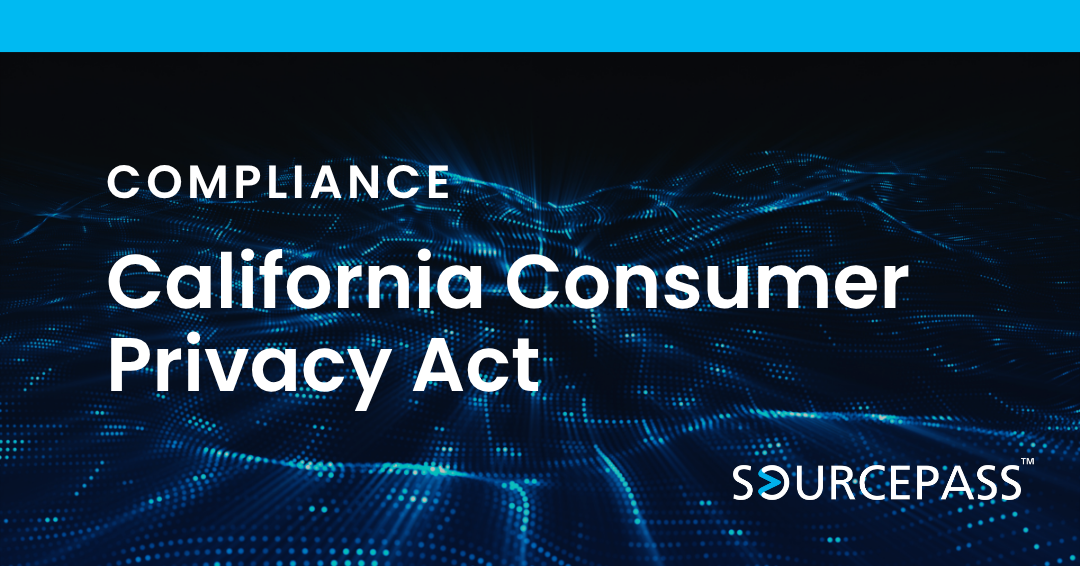The California Consumer Privacy Act (CCPA): Key Compliance Considerations for IT & Cybersecurity
Jun 02, 2025 Admin Compliance Regulations | Security & Compliance 3 min read



In an era where data privacy is a growing concern, the California Consumer Privacy Act (CCPA) stands as one of the most comprehensive data protection laws in the United States. The CCPA establishes privacy rights for California residents, requiring businesses to implement strong data security measures to protect personal information.
For IT and cybersecurity professionals, CCPA compliance isn’t just a legal requirement—it’s essential for building trust, securing consumer data, and mitigating cyber risks.
This article will cover:
- What the CCPA is
- Industries affected
- Key compliance requirements
- IT and cybersecurity measures for CCPA compliance
What is the California Consumer Privacy Act (CCPA)?
The CCPA, enacted in 2018 and effective as of January 1, 2020, grants California residents greater control over their personal data. The law requires businesses to disclose data collection practices, allow consumers to opt out of data sharing, and implement cybersecurity measures to protect personal information.
In 2023, the California Privacy Rights Act (CPRA) amended and expanded the CCPA, introducing stricter regulations, including additional rights for consumers and stronger enforcement mechanisms.
Consumer Rights Under CCPA
The CCPA grants California residents the following rights:
- Right to Know – Consumers can request what personal data is collected, how it’s used, and who it’s shared with.
- Right to Delete – Consumers can request deletion of their personal data, with some exceptions.
- Right to Opt-Out – Consumers can opt out of businesses selling or sharing their personal data.
- Right to Correct – Consumers can request corrections to inaccurate personal data (introduced by CPRA).
- Right to Limit Use of Sensitive Data – Consumers can restrict how businesses use their sensitive personal data.
Businesses must also implement reasonable security measures to protect consumer data from breaches or unauthorized access.
Industries Affected by the CCPA
The CCPA applies to any business that collects, processes, or sells personal data of California residents, regardless of where the company is headquartered. The following industries are particularly affected:
Technology & SaaS Companies
- Cloud storage providers, SaaS platforms, and tech companies handling personal data must implement strict data privacy controls.
- Businesses using AI, machine learning, or behavioral tracking must ensure transparency in data usage.
Retail & E-Commerce
- Companies that collect customer data online, track purchases, or use targeted advertising must provide opt-out options and data access requests.
- Loyalty programs must comply with non-discriminatory data policies under the CCPA.
Healthcare & Life Sciences
- While HIPAA-covered entities are largely exempt, non-HIPAA health tech and wellness platforms (e.g., fitness apps, DNA testing services) must comply with the CCPA.
Financial Services & Insurance
- Banks, lenders, and fintech companies must ensure data security, breach response plans, and opt-out mechanisms for data sharing.
Advertising & Digital Marketing
- Businesses engaging in targeted ads, behavioral tracking, or selling consumer data must allow consumers to opt out of data sharing.
- Google, Meta, and ad-tech platforms have had to revise their privacy policies and cookie consent frameworks for CCPA compliance.
IT & Cybersecurity Firms
- IT security providers handling consumer data must ensure compliance with encryption, data storage, and cybersecurity frameworks.
- Companies offering data processing services must sign Data Processing Agreements (DPAs) ensuring compliance with CCPA.
Compliance Requirements & Key Components
To comply with the CCPA, businesses must adopt privacy-centric policies and strong cybersecurity measures. Below are the core compliance requirements:
Data Inventory & Mapping
- Businesses must identify what personal data they collect, store, process, and share.
- IT teams must conduct data mapping exercises to track the flow of consumer data across systems and third parties.
Consumer Data Requests (DSARs)
- Companies must set up a process for consumers to submit Data Subject Access Requests (DSARs) to:
-
- Request their data
-
- Delete their data
-
- Opt out of data sales
- IT teams must automate DSAR workflows to respond within the 45-day legal deadline.
“Do Not Sell My Personal Information” Link
- Businesses that sell or share data must display a clear “Do Not Sell My Personal Information” link on their website.
- IT teams must implement cookie consent and opt-out mechanisms to comply.
Data Security & Cybersecurity Controls
- CCPA requires businesses to implement reasonable security measures to prevent data breaches.
- Key cybersecurity requirements include:
-
- Encryption of personal data
-
- Multi-factor authentication (MFA) for user accounts
-
- Endpoint security & malware protection
-
- Access controls (least privilege access)
Vendor & Third-Party Compliance
- Companies must audit third-party vendors, including cloud providers, data processors, and marketing partners, for CCPA compliance.
- Vendors must sign Data Processing Agreements (DPAs) outlining their privacy responsibilities.
Incident Response & Breach Notification
- Companies must have a data breach response plan and notify consumers if a breach occurs.
- Failing to protect consumer data can lead to CCPA penalties and lawsuits.
IT & Cybersecurity Strategies for CCPA Compliance
IT and cybersecurity teams play a crucial role in ensuring CCPA compliance. Here’s how they can help:
Implement Strong Data Security Measures
- Use end-to-end encryption for sensitive consumer data.
- Deploy Zero Trust security models to minimize risk.
- Enforce Multi-Factor Authentication (MFA) for employees accessing consumer data.
Automate Data Subject Access Requests (DSARs)
- Implement privacy request portals that allow consumers to request, modify, or delete their data.
- Automate data retrieval workflows to meet the 45-day DSAR deadline.
Monitor & Audit Data Access
- Conduct regular security audits to ensure proper access controls and compliance.
- Use SIEM (Security Information and Event Management) tools to detect unauthorized data access.
Train Employees on Privacy & Security Policies
- Conduct CCPA compliance training for employees handling consumer data.
- Train marketing, sales, and IT teams on privacy best practices and DSAR handling.
Establish an Incident Response Plan
- Have a breach notification plan to inform consumers if their data is compromised.
- Implement 24/7 cybersecurity monitoring for threat detection and response.
Master CCPA with Sourcepass
The CCPA is reshaping how businesses handle consumer data, requiring strong cybersecurity practices, transparent data policies, and enhanced consumer rights. Compliance isn’t just about avoiding fines—it’s about protecting consumer trust and preventing cyber threats.
For businesses handling California consumer data, ensuring CCPA compliance means:
- Strengthening data security
- Automating consumer privacy requests
- Enforcing vendor & third-party compliance
- Implementing breach response plans
By aligning IT security strategies with CCPA requirements, organizations can safeguard consumer data, maintain compliance, and enhance overall cybersecurity resilience.
Subscribe To
Sourcepass Insights
Sourcepass Insights
Stay in the loop and never miss out on the latest updates by subscribing to our newsletter today!



